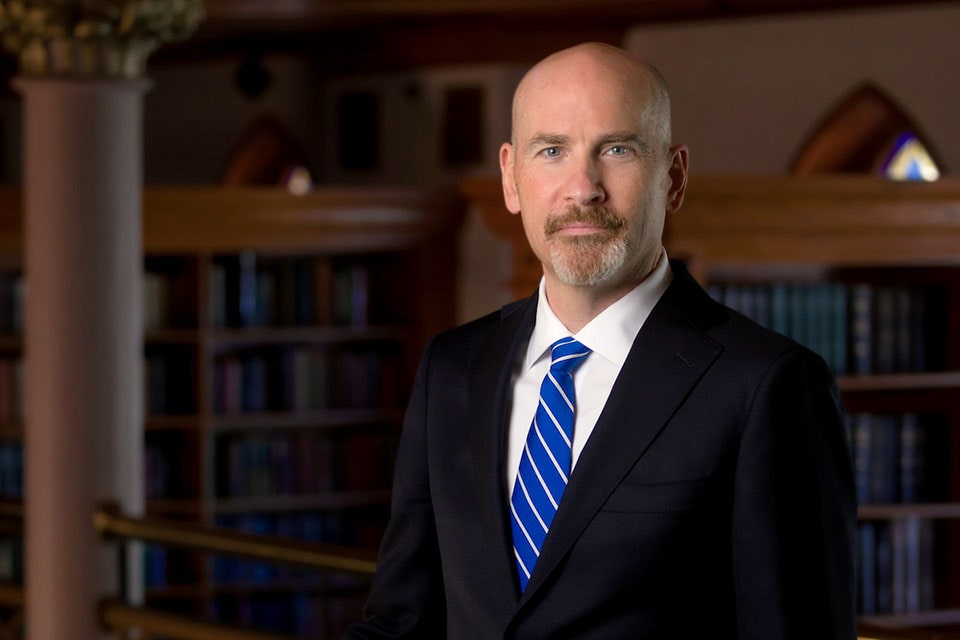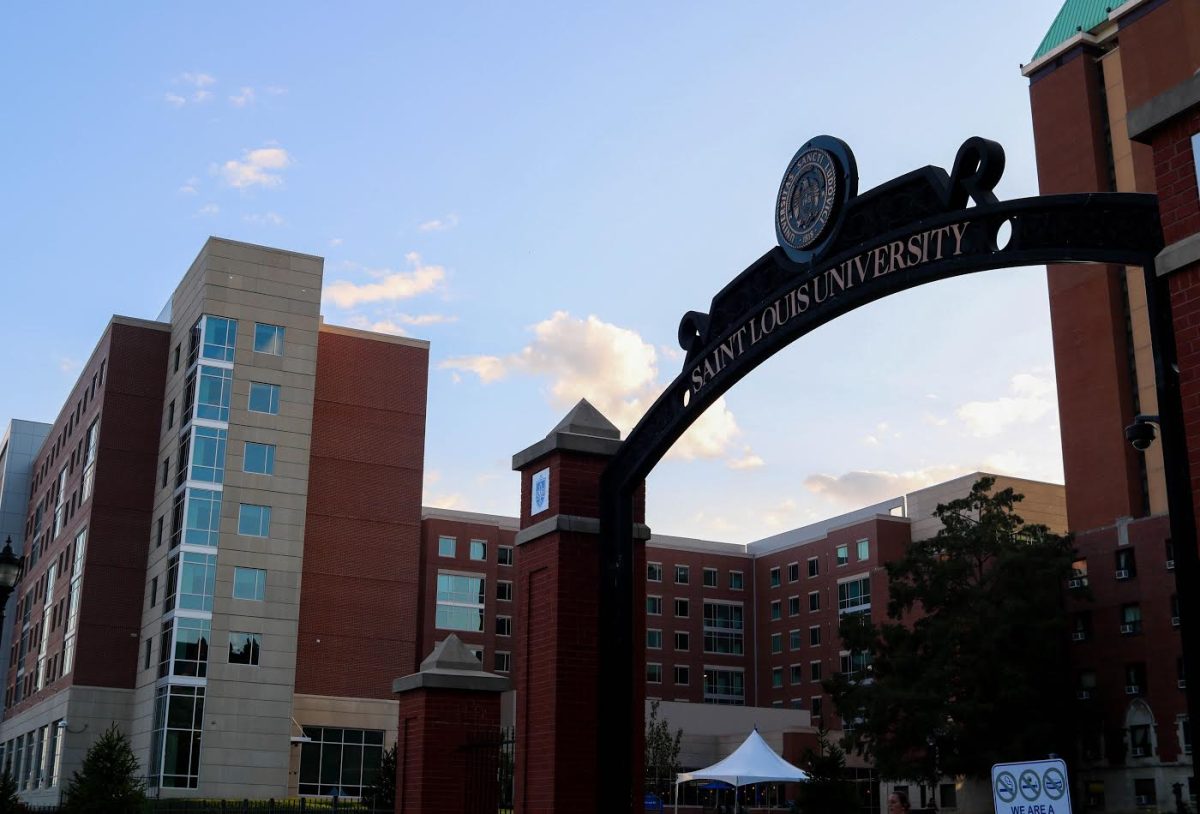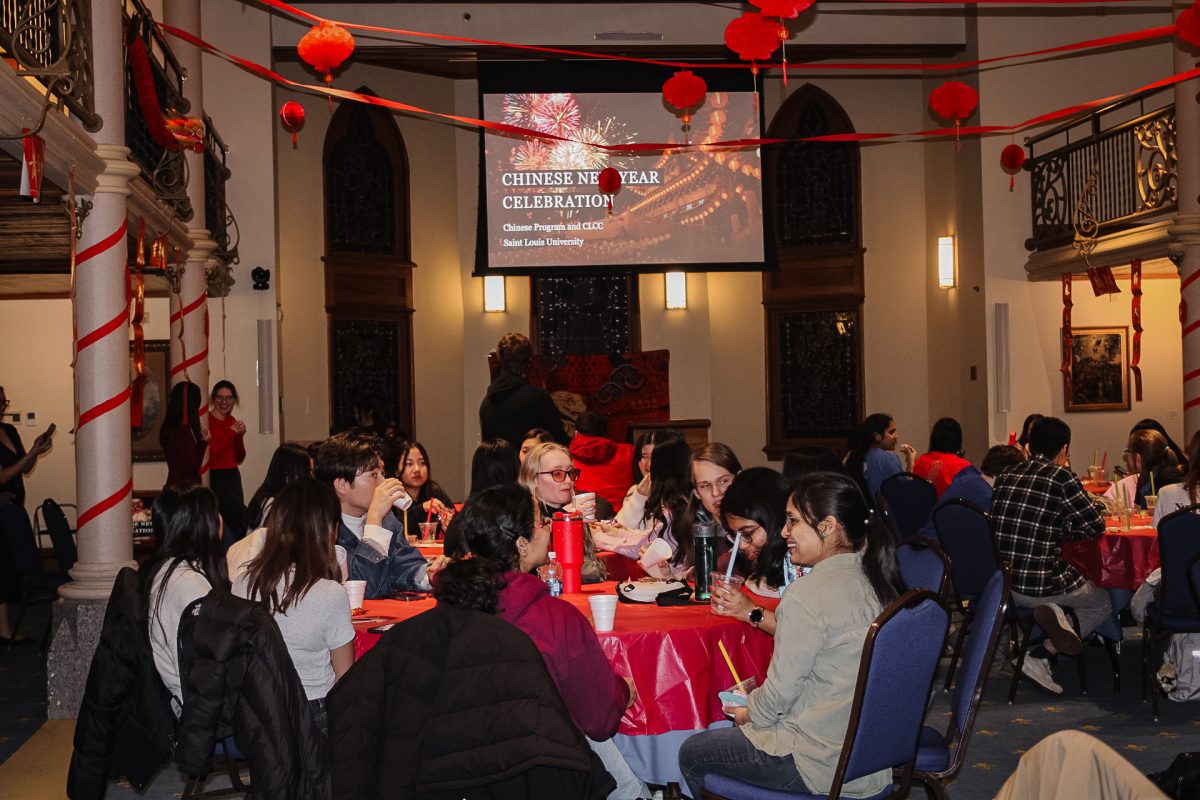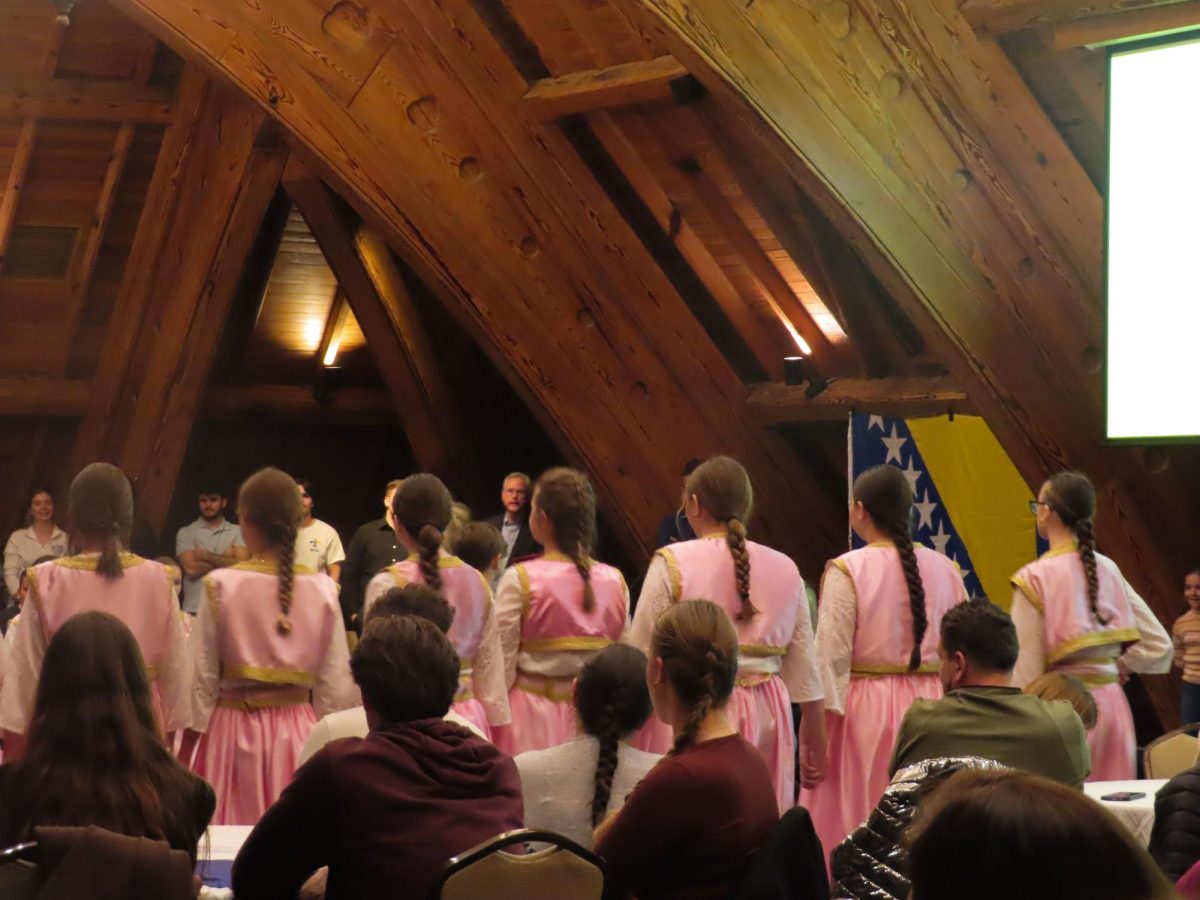Saint Louis University’s Board of Trustees elected Dr. Edward J. Feser as the 34th university president, an experienced higher education administrator who will take office on July 1, 2025.
Feser comes to SLU as the second non-Jesuit president in the university’s 207-year history, after his forerunner Dr. Fred Pestello’s decade-long tenure. His campus visit in January sparked conversations and comparisons with his predecessors across campus.
“What I’m hoping for is that we will see an increased presence, and then a return to that very visible and accessible university president. That’s what marked the earlier years of President Pestello’s tenure,” Ruben Rosario-Rodriguez said, SLU Faculty Council and Assembly Leadership representative for the College of Arts and Sciences.
A Roman-catholic, Jesuit educated and experienced administrator, Feser comes to St. Louis after an impressive eight years as provost at Oregon State University (OSU). Feser was also an accomplished academic before transitioning to administration, serving as the department leader of urban and regional planning and Dean of Fine and Applied Arts at the University of Illinois Urbana-Champaign.
Feser comes to SLU after an extensive search process
Feser’s election followed a nearly year-long process from the Presidential Search Committee starting March 2024. This committee consisted of 13 members and was led by Board of Trustees representative Joseph Conran.
Representatives from the board, the Society of Jesus, faculty and students, both in St. Louis and in Madrid, developed a leadership profile to assist in candidate recruitment. After a long period of candidate selection, interviews, board recommendations and elections spanning all of the Fall 2024 semester, Feser was announced president in an email from Board of Trustees Chair Eric Engler on Dec. 16.
“The board unanimously voted to appoint Dr. Feser during its meeting on December 6, following an extensive national search that began in March,” Engler wrote. “I saw the heart of SLU’s Jesuit mission embodied in Dr. Feser’s collaborative and community-center approach to leadership.”
The announcement also included a video statement from Feser, in which he explained his leadership philosophy and experience, and said he is excited to lead SLU through the next steps of its history.
“I believe that when we bring all aspects of a university’s mission together, we prepare students for lives of purpose, and ignite new possibilities for serving the greater good,” Feser said. “It feels like returning home, to an urban, Jesuit research university in the heart of a great city.”
Student Government Association President Rueline Arulanandam, who also served on the President Search Committee, gave insight into what made Feser stand out. She said that while Feser’s experience made him an obvious top candidate, his commitment to joining SLU and the city of St. Louis was also important.
“Part of it was his leadership style and experience – stuff that narrowed him down as one of our top candidates. But also a lot of it was him and his family choosing St. Louis, choosing SLU,” Rueline said.
What challenges Feser inherits at SLU
As provost of OSU, Feser helped combat some of the public university’s enrollment challenges, an issue SLU and many other universities face.
His leadership saw growing enrollment, increased student diversity, progressive budget policy reform and the oversight of a $213 million Collaborative Innovation Complex that will support the technology industry in Oregon.
Feser inherits a complex situation at SLU, with budget concerns, enrollment uncertainty and ongoing graduate student union negotiations.
After a large decrease in international student enrollment, SLU has been facing a $20 million budget deficit since the start of the 2024-25 academic year, which has forced all divisions to cut spending by 4%. A university-wide hiring freeze was implemented and scheduled faculty raises were delayed. After 130 open positions were eliminated and 23 staff were laid off last October, anxiety has been spreading among some professors and other faculty.
“He’s going to be a university president who, rather than letting his vision guide our spending priorities – we’ve already set the spending priorities – which are mostly cuts,” Rosario-Rodriguez said. “This could be a great opportunity for some real visionary leadership. At the moment, people are kind of in shock (about the budget).”
Eileen Schaub, a teaching assistant for introductory biology and ecology labs and member of the graduate student workers union, expressed a similar view. She said that the achievements of the past administration under Pestello should be a reference for the expectations under Feser.
Graduate student workers voted overwhelmingly in favor of unionizing in Nov. 2024, establishing the Graduate Workers of Saint Louis University Union-UAW. The United Auto Workers-backed effort represents over 500 graduate workers on SLU’s campus.
“They did increase our stipends with a three-year plan, and that’s great. But we are still well below the living wage for St. Louis. What’s very important for us is to make sure that we are able to meet the changing cost of living, so we are only stressed about research,” Schaub said.
Regardless of the many challenges the institution faces, Schaub said the board’s announcement of Feser sparked a sense of hope for her and others in the graduate student workers union.
“We are very much looking forward to working with the new administration. We’re hopeful that we can have a process that is fair to all parties and have an outcome that is fair,” Schaub said.
Student reactions have been mixed, with many not having an opinion or enough information to make one. In a University News Instagram poll conducted in January with over 150 responses, 40% of respondents had ‘no opinion’ on the incoming president and 35% had ‘mixed feelings.’ Just 12% said they felt negatively.
Arulanandam said from her view, Feser’s campus visit on Jan 13- 14. was met with enthusiasm from the student body.
Feser and his wife Kathy met with students and faculty from both North and South campuses, and hosted events at the medical and law schools.
“I think people are just really excited,” Arulanandam said. “Everyone I’ve interacted with that got to meet him and his wife have had positive things to say.”
Arulanandam and several other members of SGA’s executive board also had lunch with Feser in Grand Dining Hall during his visit. She said they discussed issues important to SLU students including diversity, disability services, academic resources and campus activism. Arulanandam said that she was impressed by his attention and questions.
Legacy of SLU’s past presidents
Feser’s announcement also sparked comparisons with the president’s that he will succeed. His tenure comes after those of two distinct and very different university presidents, Father Lawerance Biondi and Pestello.
Biondi’s tenure saw great advances in funding and spending but was also marked by controversy. Biondi’s unpopular support of Vice President of Academic Affairs Manoj Patankar, his aggressive leadership style and his questionable faculty-evaluation policies sparked multiple votes of no-confidence in the faculty senate, and ultimately led to his resignation and retirement in 2013.
Pestello succeeded Biondi in 2014 and brought a much different vision to SLU. Pestello oversaw large advancements in research, including achieving the coveted R1 status in January 2025, assisting in a $550 million partnership with SSM Health and helping establish the Taylor Geospatial Institute. Under Pestello’s leadership, SLU saw historic levels of fundraising and alumni donations.
His peaceful handling of the six-day-long student protest in 2014 and the resulting Clock Tower Accords was praised by students and the board alike, despite pressure from parents and alumni at the time. Pestello achieved a rare balance of popularity among students, faculty and the board, and his announcement to leave SLU in 2024 was met with bittersweetness.
Campus concerns about Feser
The board’s announcement of Feser as the next president has, also, sparked some concerns and criticisms.
“Will the success he had at a large, land-grant university transfer to a private, religious university?” Rosario-Rodriguez said.
While Feser has a proven track record at OSU and the UIUC, his presidency at SLU will be his first experience at a private research institution.
The board’s announcement in December also resurfaced a 2023 lawsuit against OSU alleging claims of discrimination and retaliation, in which Feser was named as a defendant. The lawsuit resulted in a jury verdict against Feser and OSU, awarding Pharmacy Dean Grace Kuo $600,000 in damages.
Schaub, the graduate teaching assistant, said that while the lawsuit is concerning, she believes it speaks more to the state of higher education rather than anything about Feser himself.
“I think it is more of a symptom of problems with academia than with him specifically. It seemed like he had tried to do the right thing, and then the donors and alumni outside of the university retaliated quite strongly,” Schaub said.















